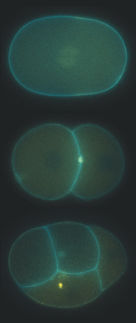A-Viral's RA-study has good progress, Management talks with major Pharmaceuticals and Biotech Investors
Advertisement
A-Viral's phase 2 study on RA is progressing well, and has attracted attention from several of the world's major pharmaceutical companies, who has asked for meetings to evaluate our technology. Also biotech investors ask for presentations.
The study on Rheumatoid Arthritis at Jan van Breemen's Intitute (JBI) in Amsterdam is a double blind study with 30 patients who will receive either AV 1101 or placebo daily for 12 weeks, with a last medical check after 16 weeks. The main success criterion is lowering of the Disease Activity Score. By mid June one fourth of the patients were enrolled. Due to scientific requirements, no data will be available before the study is ended, thus the first results from the study will appear in the first part of 2005.
The study has attracted attention from several of the world's major pharmaceutical companies, who has asked for meetings to evaluate our technology. So far one of the top 10 companies is reviewing A-Viral's research under a Confidentiality Agreement after a meeting mid June. A-Viral's management will also present the company to investors specialized in biotech. No further press release will be issued until we have an agreement on cooperation either with a pharmaceutical company or a biotech investor.
For the time being there are few smaller companies that have reached phase 2 with a drug for autoimmune diseases. This places A-Viral in a favourable position, because larger pharmaceutical companies are facing a revenue problem since their patents on existing drugs expire faster than they can replace them with new drugs from their own pipeline of potential drugs. Hence they are interested in making licensing agreements for successful drugs from smaller companies. Buy-out is another strategy some pharmaceutical companies use for meeting this demand.
Most read news
Other news from the department research and development

Get the life science industry in your inbox
By submitting this form you agree that LUMITOS AG will send you the newsletter(s) selected above by email. Your data will not be passed on to third parties. Your data will be stored and processed in accordance with our data protection regulations. LUMITOS may contact you by email for the purpose of advertising or market and opinion surveys. You can revoke your consent at any time without giving reasons to LUMITOS AG, Ernst-Augustin-Str. 2, 12489 Berlin, Germany or by e-mail at revoke@lumitos.com with effect for the future. In addition, each email contains a link to unsubscribe from the corresponding newsletter.























































